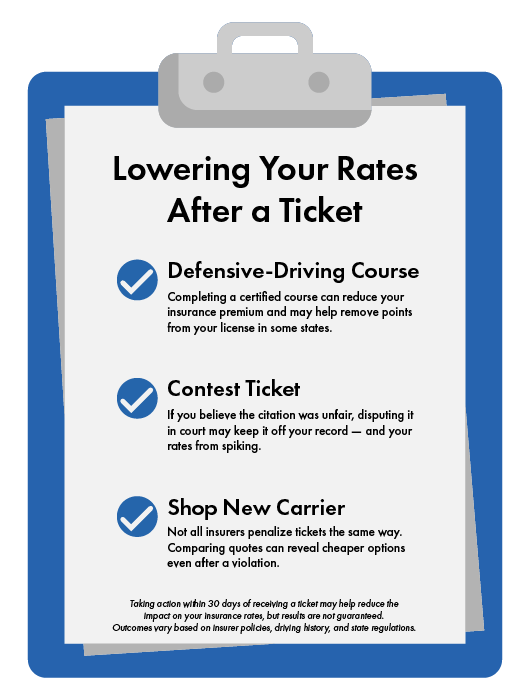Texting while driving is illegal in almost every state. Forty-eight states and D.C. consider it a moving violation with fines and higher auto insurance rates. Only that state of Montana doesn't have a texting law, and Missouri only applies to drivers under 21.
Auto insurance premiums increase 29% on average after getting a texting ticket. Still, they can range from 10% to 50%, depending on state traffic laws and insurers. Since most insurance companies consider cell phone violations risky behavior, a texting ticket will impact your car insurance rate at renewal.
With stricter laws and higher penalties, stay focused and keep your clean record and your insurance costs down.
Does a Texting While Driving Ticket Raise Car Insurance Rates?
A ticket for texting and driving will increase your car insurance rates because insurance providers consider distracted driving behavior a high risk, increasing the likelihood of accidents.
The amount of the rate increase will depend on the auto insurance company and state. Most insurance companies treat texting and driving violations like minor moving violations and raise rates at renewal.
Also, a texting and driving offense will get you a fine, which varies by state. Beyond the fine, it will also impact your motor vehicle record (MVR), which insurance companies use to assess risk and determine premiums.
Multiple offenses or more severe distracted driving offenses can lead to even higher car insurance rates or non-renewal of your policy.

How Many Points Does a Texting While Driving Ticket Add to your Driver's License?
Several states operate with a point system wherein every traffic violation is tracked with several points on the driver's license. Too many drivers license points can result in a driver's license suspension.
However, points on your driver's license are not permanent and will reset after a certain period when the driver remains violation-free. The amount of points added to your driver's license after a cell phone ticket depends on the state.
Points are usually not added to your driver's license if it is your first traffic violation. However, states like Colorado, Kentucky, and Alabama add points to the driver's license for first-time cellphone offenders.
Colorado adds four points to the driver's license for a cell phone ticket.
Alabama adds two points to the driver's license for a cell phone ticket.
Kentucky adds three points to the driver's license for a cell phone ticket.
Driver's license points can also affect car insurance since your auto insurance company is in contact with your state's DMV.
That's why it's essential to look at your state's laws regarding cell phone and hands-free device usage while driving. A mobile phone ticket can cause much more trouble than they are worth.
Is a Texting and Driving Ticket a Moving Violation?
A moving violation is a traffic offense committed by a driver while in motion. It can include speeding, reckless driving, a DUI, and failure to heed traffic signs. Some states count not using your turn signal as a moving violation.
Driving under the influence is in the same category as texting and driving. This should highlight the severe potential damage of taking your eyes off the road and talking on a cell phone while driving. You don't want to be seen by our insurance carrier as a high-risk driver.
Importance of Avoiding Distracted Driving
Distracted driving is a bad habit that can lead to serious accidents. NHTSA says even looking at a phone to read a text is like driving with your eyes closed. Distracted drivers can't see sudden changes in traffic, like a car stopping or a pedestrian stepping out.
To stay safe on the road, eliminate distractions like texting and driving, holding your phone during conversations, or applying makeup behind the wheel. Stay focused and avoid dangerous behavior to protect yourself and others.
Get Affordable Auto Insurance, even after a few traffic violations!
Insurance Navy offers cheap SR22 insurance filings for drivers with various risk levels. Get free car insurance quotes online and make the switch today. Our insurance agents are just one call away: 888-949-6289. Feel free to stop by one of our many storefronts. Affordable Car Insurance shouldn't be a hassle, and Insurance Navy can help.



